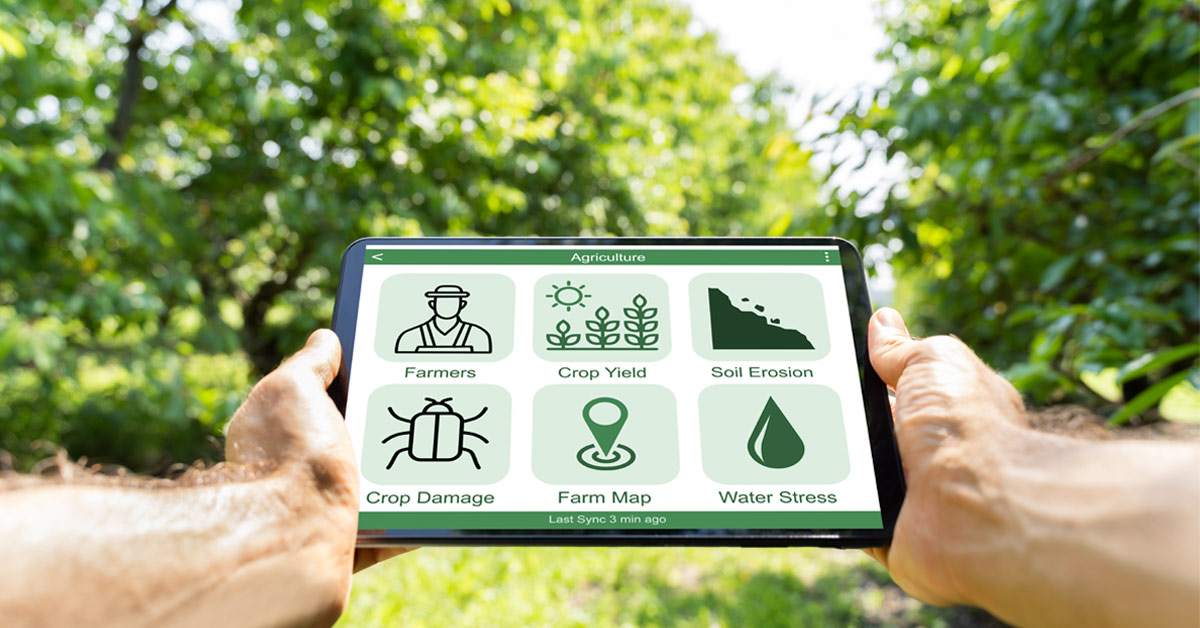
In modern agriculture, innovation is much needed and important for farming. The agriculture sector as a whole is facing enormous problems, including growing supply prices, workforce scarcity, and changes in customer demands for transparency and sustainability.
Indoor vertical farming, automation and robotics, livestock technology, precision agriculture, and artificial intelligence are a few examples of major technological breakthroughs in the field.
Indoor Vertical Farming
Indoor vertical farming may boost crop yields, surpass restricted land area, and even lessen the environmental effect of farming by eliminating supply chain long distances.
Indoor vertical farming is the process of growing vegetables stacked one on top of the other in a confined and regulated environment.
When compared to traditional farming methods, adopting growing shelves that are placed vertically reduces the amount of area required to cultivate plants.
Because of its propensity to thrive in small spaces, this style of farming is frequently connected with the city and urban farming.
Some vertical farms are unusual in that they do not require soil for plant growth. The majority are either hydroponic (vegetables grown in a nutrient-dense bowl of water) or aeroponic (plant roots are systematically sprayed with water and nutrients).
Indoor vertical farming promotes urban expansion to increase food production with reduced labor expenses. Vertical farming can precisely measure year-round factors, including light, humidity, and water, enhancing food output with consistent harvests.
Farm Automation
Farm automation is generally linked with smart farming, and it is a type of technology that improves farm efficiency by automating the crop or livestock production cycle.
Various firms are working on robotics innovation to create drones, self-driving tractors, robotic harvesters, automatic watering systems, and seeding robots.
Although these technologies are still relatively new, the sector has seen conventional agriculture enterprises incorporate farm automation into their processes.
Technological developments ranging from robots and drones to computer vision software have fundamentally transformed modern agriculture.
The major purpose of agricultural automation technology is to handle simpler and perform daily routine tasks. Farms typically use the following important technologies such as harvest automation, electric farm tractors, planting and weeding, and drones.
Livestock Farming Technology
The conventional livestock sector is generally neglected and mistreated while possibly being the most important. Livestock supplies renewable natural resources on which humans rely daily.
Traditionally, livestock management runs the operation of poultry farms, dairy farms, cattle ranches, or other livestock-related agribusinesses.
Livestock managers must hold correct financial records, monitor employees, and ensure adequate animal care and feeding. Recent trends, however, have demonstrated that technology is transforming the field of cattle/livestock management.
The technology of livestock may improve animal and livestock productivity, welfare, and management.
The ‘connected cow’ term emerged as more dairy herds were outfitted with sensors to monitor health and boost output. Individual wearable sensors placed on cattle may monitor daily activity and health concerns while offering data-driven insights for the entire herd.
Sensor and data technology have significant implications for the livestock industry. It can increase cattle output and welfare by detecting unwell animals and intelligently identifying areas for improvement.
Precision Agriculture
Precision agriculture firms are developing technologies that will allow farmers to optimize yields by managing every variable in crop cultivation, such as moisture levels, pest stress, soil conditions, and micro-climates.
Precision agriculture helps farmers boost efficiency and minimize expenses by providing more precise strategies for planting and producing crops.
Artificial Intelligence
The growth of digital agriculture and related technologies has created a lot of new data processing possibilities. Remote sensors, satellites, and unmanned aerial vehicles (UAVs) can collect data on a whole field 24 hours a day.
These may keep track of plant health, soil conditions, temperature, humidity, and other factors. The quantity of data these sensors create is huge in numbers, and that is why the value of numbers is covered by abundant data.
The goal of artificial intelligence is to provide farmers with a greater vision of the situation on the ground. The use of using modern technologies like remote sensing can inform them more about their position than they can see with their eyes.
To conclude, the technology is intended to improve farming techniques to feed a huge population. Farmers will be able to utilize the technologies to accomplish their objective of a greater harvest by making smarter field decisions.